Hemolytic Disease of the Fetus and Newborn (HDFN) still happens, and all involved must respond quickly. Dr. Greg Denomme guides us to better HDFN understanding and management.

Dr. Greg Denomme
Call in the Expert!
Dr. Greg Denomme, winner of the 2017 AABB Sally Frank Memorial Award, has studied HDFN and worked in maternal-fetal transfusion for decades, and he is my guest to help us understand why HDFN is still a problem. He will outline clinical and laboratory aspects of HDFN prevention and monitoring, and discuss several cases that illustrate some pitfalls for all involved in these potentially heartbreaking cases.

Dr. Greg Denomme
Call in the Expert!
Dr. Greg Denomme, winner of the 2017 AABB Sally Frank Memorial Award, has studied HDFN and worked in maternal-fetal transfusion for decades, and he is my guest to help us understand why HDFN is still a problem. He will outline clinical and laboratory aspects of HDFN prevention and monitoring, and discuss several cases that illustrate some pitfalls for all involved in these potentially heartbreaking cases.
About My Guest:
Greg Denomme, PhD, FCSMLS(D) (@GregDenomme) is the Senior Director of Immunohematology and Innovation at the BloodCenter of Wisconsin and a Senior Investigator with the Blood Research Institute. He is a clinical and academic trained scientist, and has worked in transfusion medicine his entire career. Dr Denomme obtained his med tech credentials along with an ART and then a doctorate in Microbiology & Immunology, followed by two postdoctoral fellowships (Pathology & Molecular Medicine at McMaster University and platelet immunology with the Canadian Red Cross Society). He received a 5-year Medical Research Council/Canadian Blood Services Scholarship while at the University of Toronto, and his work focused on platelet antigen and blood group genetics and maternal-fetal transfusion medicine. Since moving to the BloodCenter of Wisconsin, Greg has been leading the Immunohematology Reference Lab’s foray into molecular blood group genetics. With his team, he’s developed a donor red cell genotyping program and has expanded patient testing in molecular immunohematology.
The images below are generously provided by Dr. Denomme.

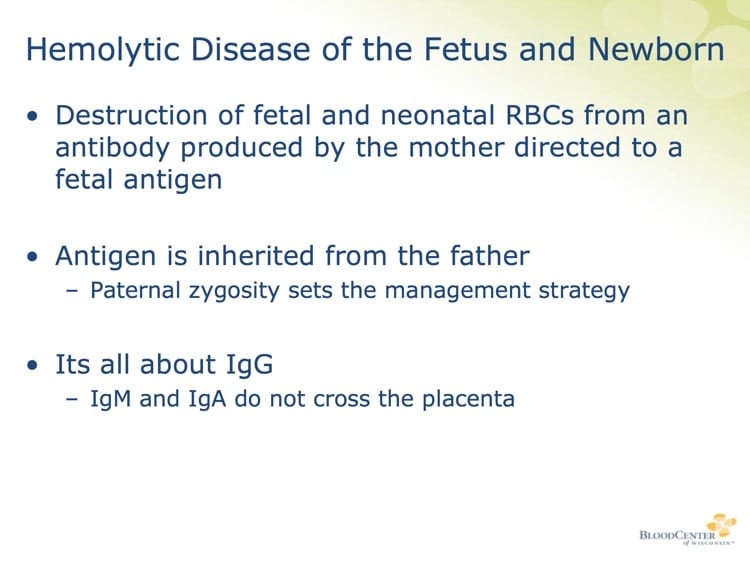
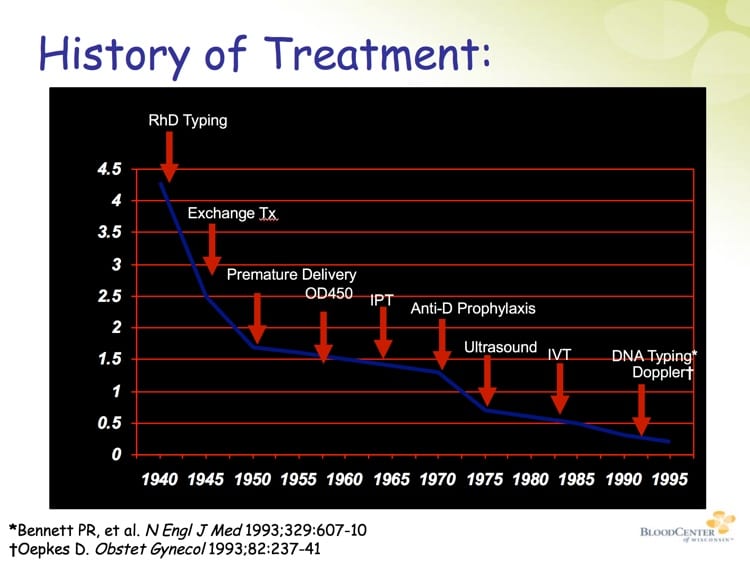
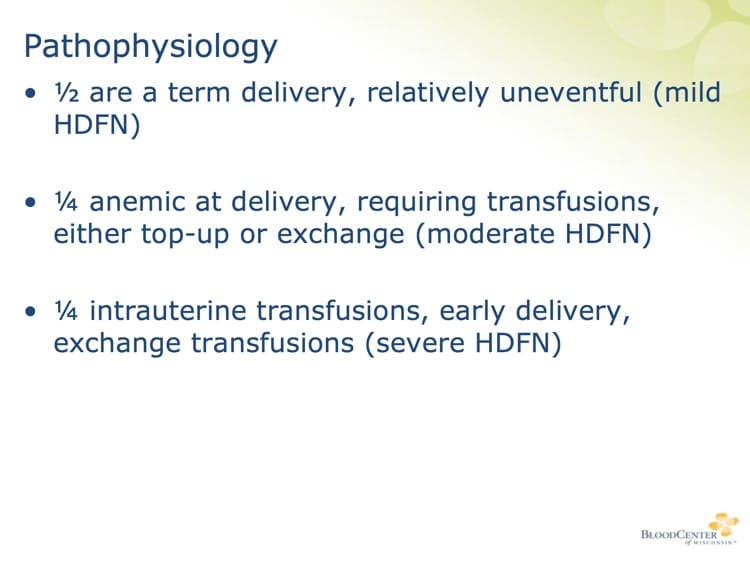
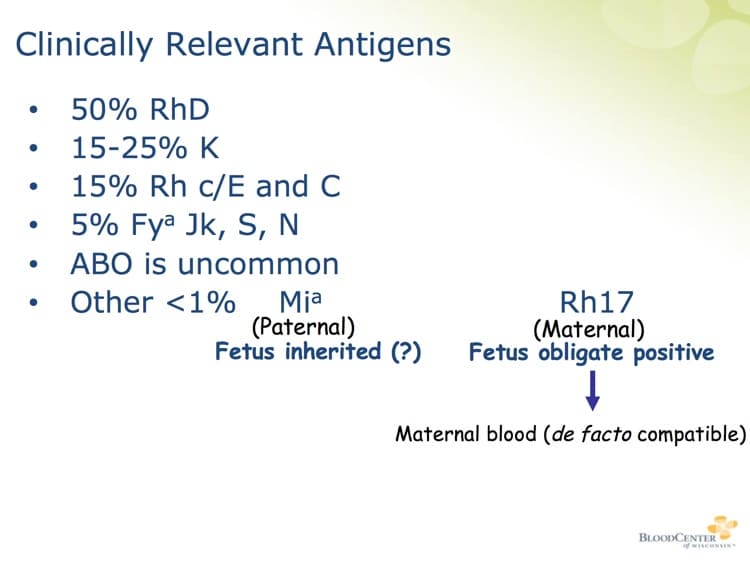
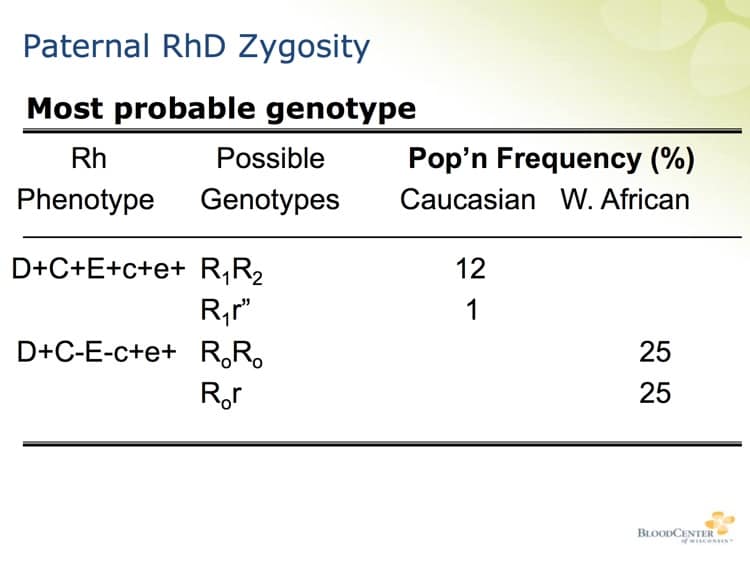
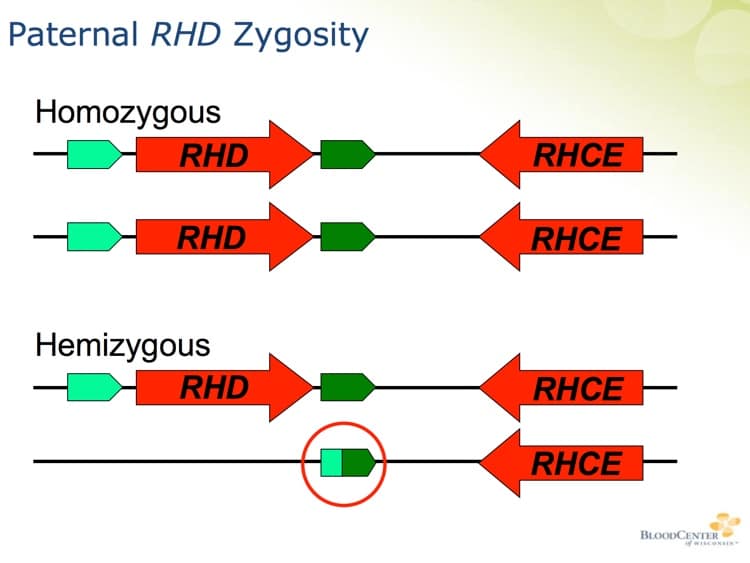
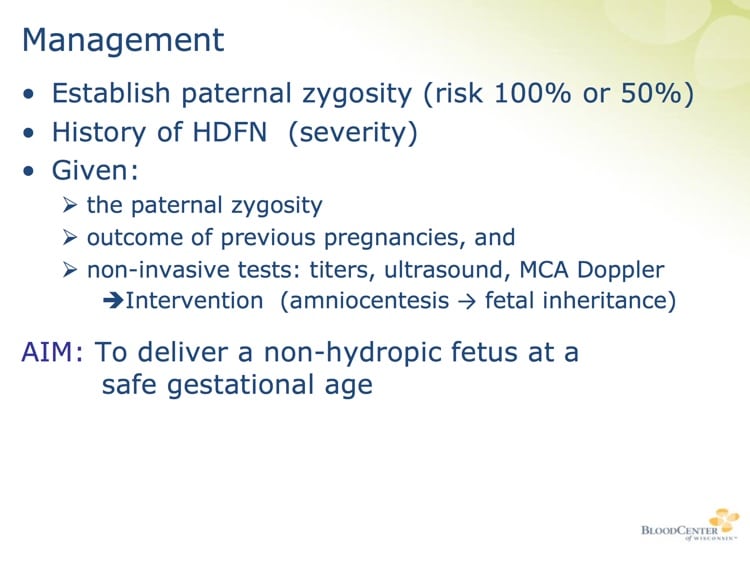
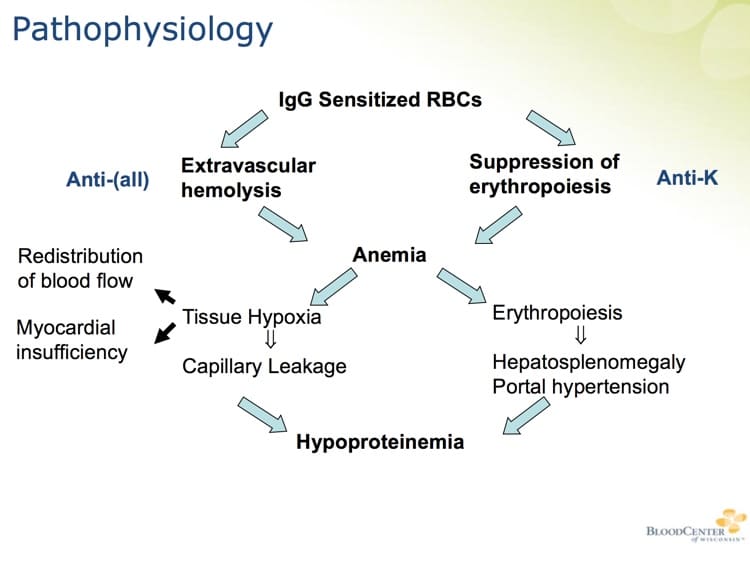
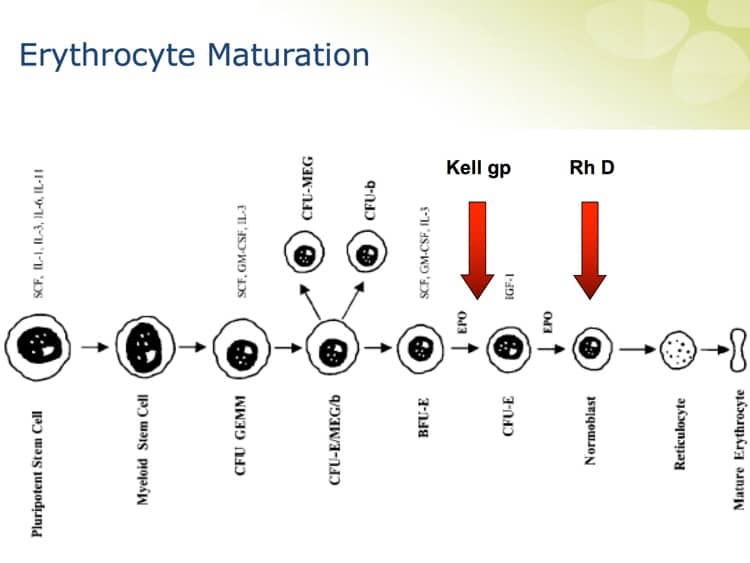
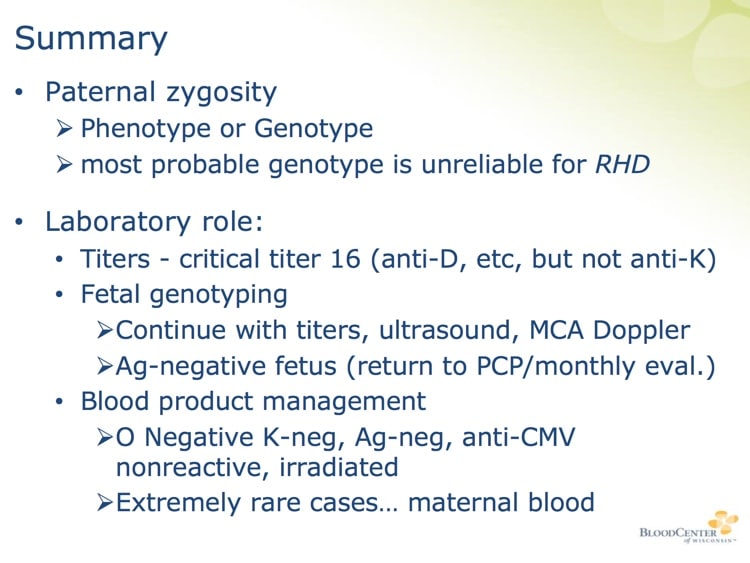



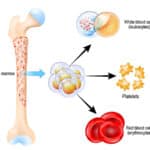

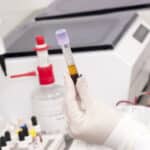



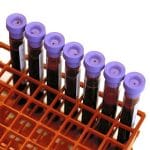

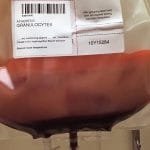
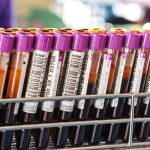
BRILLIANT, BRILLIANT, BRILLIANT! I was purring as I listened to this Podcast discussion between two of my favourite speakers! To be pedantic (as I ALWAYS seem to be) blood group antigens are not inherited, but the genes governing their expression are inherited! I was a little surprised that Greg did not mention the use of cell free foetal DNA harvested from the maternal circulation to allow foetal genotyping in a non-invasive fashion, but, as you so correctly said at the end yourself Joe (concerning anti-G), you couldn’t include everything. I repeat, a brilliant Podcast.
I’m very honored, Malcolm! I completely agree that Greg is fantastic! As for your “pedantic” note, you are of course correct. For the cell-free DNA issue, that issue is a little bit “dicey” in the US (patent issues and other confusing questions abound, unlike in Europe; I discussed this with Meghan Delaney in Episode 029 at around the 49 minute mark), so I elected to avoid the question (maybe not the best call in retrospect!). I would refer interested folks to the episode linked above for Meghan’s discussion.
-Joe
Thanks Joe. I’ll try to do that.
Thanks Malcolm! Maternal-fetal transfusion medicine remains my favourite discipline. So many examples of serologic and molecular immunohematology working together.
Great talk, I just loved it THANK YOU!
Excellent podcast! Love the quiz at the end too :$@)
Thanks, Sandra! I’m very glad it was helpful (and that you liked the quiz!).
-Joe
A really great podcast…it’s very informative. I’ve learned a lot and it enlightened me..it’s very helpful especially for someone like me assigned in bloodbank transfusion medicine…thank you so much …
I’m very glad it was helpful!
-Joe
The quiz is really cool Dr. Chaffin! ?? Thank you!
Glad you like it, Eileen!
-Joe
Had a question come up about this topic today and remembered this podcast! A mom’s prenatal work showed a negative screen, upon delivery she tested positive for Fya, baby antigen typed negative for Fya and mom is insistent she did not receive any transfusions. Any idea how she gained the antibody?
Okay, the mom didn’t any transfusion. But did the baby? More specifically, an intrauterine transfusion. There has been cases where an Anti-Fya has been detected when the fetus were anaemic and it received an intrauterine transfusion(s). If it has been over 120 days after the transfusion, Duffy antigens probably wouldn’t show up on the serological phenotype of the baby’s cells.
Wrong blood in tube?
Sorry, I’m not sure what you are asking in the context of this particular podcast! Can you clarify?
-Joe
Hi Joe,
thanks for bringing us this topic. I am always learning something new with your podcasts 🙂 Thanks a lot!
Is the baby’s DAT always pos in HDFN due to an alloantibody from the mother?
The simple answer is yes, if the IgG alloantibody crosses the placenta and sensitizes the baby’s cells.
Hi Dr Joe, once again incredible podcast! Thanks to you I am understanding Immunohematology (that is a huge accomplishment, specially when you work most of your time in the clinical setting!).
I completely understood the ABO incompatibility, but if the reference book (normally it’s AABB) says that ABO it is now the most common cause of HDFN…maybe it’s not so correct to say that Rh it’s the most common cause…
(I’m talking as a person who will soon do an exam related to transfusion medicine…)
Kind regards,
emilia
I have for a couple of decades taught that ABO HDFN is most common, and I still feel that way. Greg, on the other hand, does not feel that the level of hemolysis in ABO mismatches rises to the level of actual “hemolysis” often enough to actually call it “HDFN.” So, I understand what you are saying, and I agree!
-Joe
Hi Dr Joe, and Greg,
This is a great talk, a nice synopsis! Thank you.
Have one small question:
In ABO HDN; why does Anti-A associated with more hemolysis compared to Anti-B?
dont you have a transcript for this topic? Sorry I want to understand all of you guys talking, but my english is not good to understand all of them. Could you post the transcript for me, please?